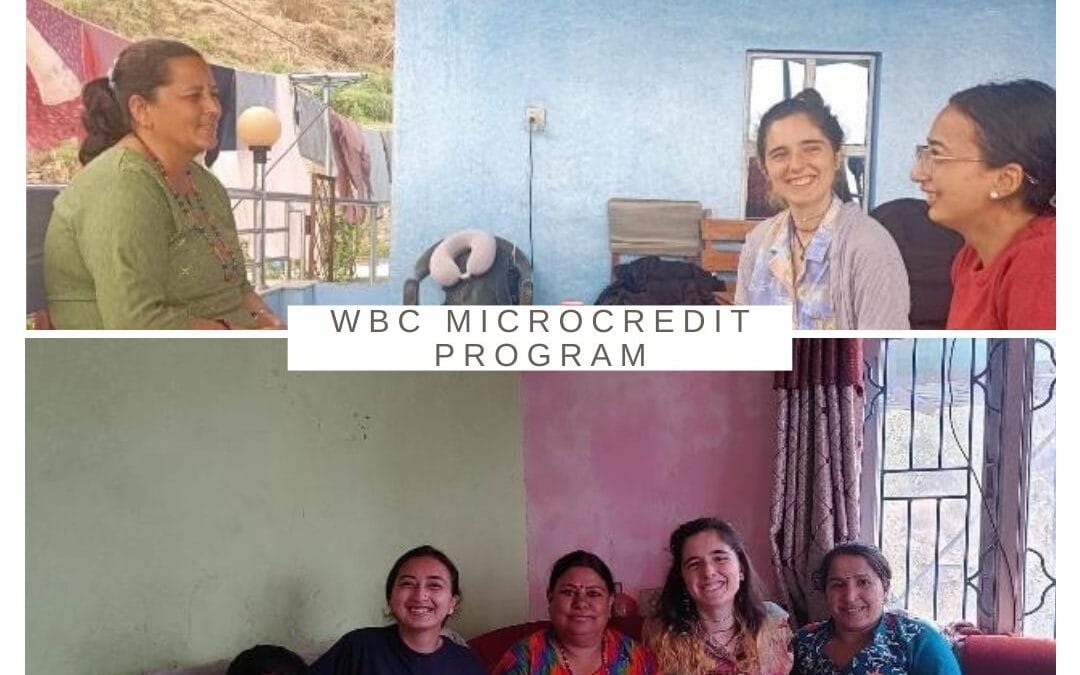Written by : Julie Tenten
In Tarkeshwor Ward No. 3, the Women’s Business Cooperative (WBC) is providing local women with access to financial resources through a microcredit program tailored to their needs. Established with the support of Volunteers Initiative Nepal (VIN)—with whom it shares a workspace—the WBC initiative offers small-scale financial services to help women improve their livelihoods, manage household finances, and pursue income-generating opportunities.
The program is open only to women residing in Tarkeshwor-3, with members organized into small groups, each with a unique name. These groups were initially formed with 11 members, though newer ones often consist of 9. Currently, the program includes around 1,100 women, all participating in monthly meetings where they contribute to a group savings fund. The required monthly contribution is NPR 200, though members are welcome to save more in personal or agricultural group accounts.
📞 Reach Out to Us! We’d love to hear from you. Contact us for more details.
One of the core features of the program is the ability to borrow small loans at low interest rates, without the need for collateral. A co-signer is sufficient, making the process more accessible than traditional banking. Additionally, participants can purchase subsidized agricultural inputs, such as fertilizers, which helps lower their farming costs.
Voices from the Program
Gavri Phuyal
Gavri Phuyal: From Savings to Small Business
Gavri Phuyal, a member for over ten years, joined the program after hearing about it from other women in her community.
She is part of the “Panchashri” group and has used the program to save regularly and take out two or three loans. One of her main goals was to open a café, an idea proposed by her son. With her family’s support, the café has become a steady source of income, and they are now considering expansion.
Gavri is also involved in vegetable farming and purchases subsidized fertilizers through the program. She notes that while the support is helpful, the quantity of fertilizer distributed is limited and could be increased. The savings aspect of the program has been especially important for her, providing financial flexibility for both emergencies and personal expenses.

Although major financial decisions, such as those related to the café, are made collectively by the family—with her husband playing a leading role—Gavri does use her personal savings for smaller purchases, like clothing and jewelry. This reflects a degree of autonomy in everyday spending, even within a more traditional household decision-making structure. She encourages other women to join, particularly those who may not have other financial options.
Laxmi Jamatel Phuyal
Laxmi Jamatel Phuyal: Managing Everyday Needs with Confidence Laxmi
Jamatel Phuyal joined the WBC program in 2012 through a community effort to ensure participation from all nine wards.

Her motivation was practical: she wanted a way to save small amounts and access loans without relying on others. Over the years, she has used loans to pay school fees, open a grocery shop, and replace a stolen motorbike.
Laxmi also saves beyond the minimum and participates in multiple savings groups. Her involvement reflects how the program can adapt to a variety of needs. Though she once paid a fine for a late repayment, she resolved the issue without difficulty. She appreciates that the repayment process is respectful and does not place undue pressure on members.
She also values having control over her personal funds, using them for family needs and special occasions. Additionally, Laxmi highlights the importance of skills training offered by WBC and VIN, which have helped some women gain new income-generating abilities, such as sewing or farming.
Laxmi stresses that the cooperative should remain focused on women’s welfare and operate free from political influence. She believes that transparency and good management are key to its continued success.

